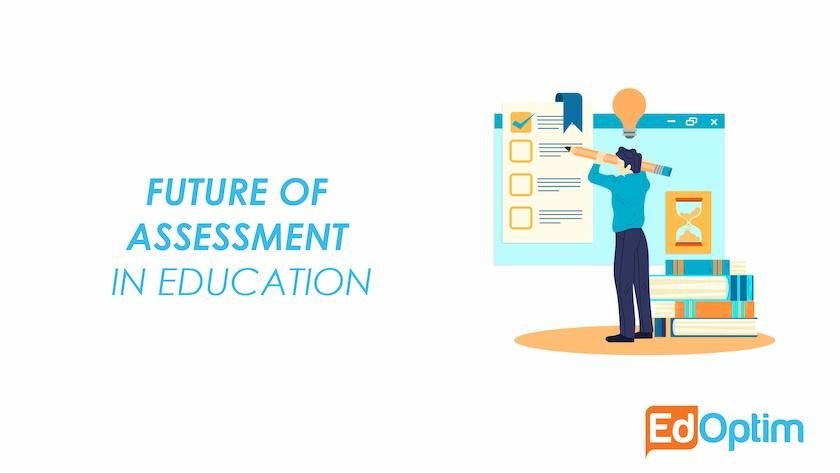Educational assessment is at the heart of learning, shaping how students, teachers, and policymakers understand academic achievement. With the ever-changing landscape of education, staying updated on educational assessment news is essential for anyone involved. This article dives deep into the most current trends, developments, and future directions in academic assessment. From innovative tools to equity in testing, we cover it all engaging and informatively.
What Is Educational Assessment?
Educational assessment systematically evaluates student learning through various tools and methods. These assessments help measure students’ knowledge, skills, and competencies in specific subjects or skill sets. Here’s what you need to know:
- Formative Assessments: Ongoing evaluations aimed at providing feedback during the learning process.
- Summative Assessments: Comprehensive evaluations occur at the end of an instructional period.
- Diagnostic Assessments: Pre-assessments that help identify students’ current knowledge and learning needs.
Understanding these basics is crucial for keeping up with the latest educational assessment news.
The Role of Educational Assessments in Modern Learning
In today’s learning environment, educational assessments go beyond simple grades. They influence curriculum design, teaching methods, and policy decisions. The purpose of assessments includes:
- Improving Student Learning: Assessments guide teachers in tailoring instruction to meet students’ needs.
- Ensuring Accountability: Schools and districts use results to show how well they meet educational standards.
- Informing Policy: Assessment data provide insight into education systems’ strengths and weaknesses.
Staying current with educational assessment news ensures educators and stakeholders make informed decisions that positively impact learners.
Critical Trends in Educational Assessment News
- Technology-Enhanced Assessments
One of the most talked-about trends in educational assessment news is the rise of technology-driven testing. Digital tools have transformed how assessments are conducted and analyzed. Benefits include:
- Instant Feedback: Online quizzes and tests provide immediate results, helping students and teachers identify areas for improvement.
- Adaptive Testing: These tests adjust their difficulty level based on the student’s responses, creating a personalized experience.
- Data Analytics: Advanced algorithms analyze results to offer deeper insights into learning patterns.
- The Move Towards Competency-Based Assessments
Competency-based assessments are becoming more popular in educational assessment news. These evaluations focus on what students can do with their knowledge rather than memorization. Key features include:
- Skill Demonstration: Students must show they can apply their knowledge practically.
- Flexible Timelines: Assessments are conducted when students are ready, not at pre-set intervals.
- Holistic Approach: A broader look at learning outcomes rather than standardized test scores.
- Equity in Educational Assessments
Ensuring fairness in assessments is a significant concern in educational assessment news. Policymakers and educators are working to reduce biases that may affect student performance. Approaches include:
- Culturally Responsive Testing: Creating questions that reflect diverse backgrounds and experiences.
- Accommodations for Special Needs: Ensuring students with disabilities receive the necessary support.
- Eliminating Bias: Training educators to create assessments free from cultural or linguistic bias.
Challenges in Educational Assessment
While there have been advancements in educational assessment news, challenges still exist:
- Standardization Issues: Balancing standardization with personalization can be tricky.
- Pressure on Students and Teachers: High-stakes testing can cause stress and limit creative teaching.
- Data Privacy Concerns: With the rise of digital assessments, protecting student information is more critical than ever.
Innovations in Educational Assessment News
- Artificial Intelligence and Machine Learning
Artificial intelligence (AI) is making waves in educational assessment news. AI-driven assessments can:
- Grade Open-Ended Responses: Automated tools can evaluate essays and short answers more efficiently than human graders.
- Provide Personalized Feedback: AI algorithms analyze student answers to provide targeted suggestions for improvement.
- Predict Student Outcomes: AI can forecast which students need additional support by studying data trends.
- Gamification of Assessments
Another popular topic in educational assessment news is the gamification of assessments. This method incorporates game elements to make testing more engaging for students. Benefits include:
- Increased Motivation: Students are more likely to participate when assessments are fun.
- Improved Learning Retention: Gamified assessments promote active learning, helping students remember content better.
- Reduced Test Anxiety: A playful approach can make testing feel less intimidating.
- Project-Based Assessments
Project-based learning (PBL) is a growing trend highlighted in educational assessment news. This approach evaluates students based on projects they complete over some time, focusing on:
- Real-World Relevance: Projects often simulate real-life scenarios that require critical thinking.
- Collaboration Skills: Many projects encourage teamwork, fostering social and communication skills.
- Creativity and Innovation: Students can approach tasks in unique ways.
Best Practices for Educators
Educators play a crucial role in implementing new trends in educational assessment news. To make the most of these developments, consider these best practices:
- Incorporate Multiple Assessment Types: Use a blend of formative, summative, and diagnostic assessments.
- Leverage Technology Wisely: Ensure that tech tools enhance, not hinder, the learning experience.
- Prioritize Student Well-Being: Strive to create a balanced assessment approach that supports mental health.
- Engage in Professional Development: Stay updated with the latest educational assessment news through workshops, seminars, and online courses.
How Educational Assessment Impacts Students
Students are at the heart of any educational assessment news update. Well-designed assessments can empower students by:
- Building Confidence: Regular feedback helps students recognize their progress and set realistic goals.
- Fostering Independence: Self-assessment tools encourage students to take ownership of their learning.
- Preparing for the Future: Competency-based and project-based assessments develop critical college and career readiness skills.
The Future of Educational Assessment
The future of educational assessment news points to even more innovation and inclusivity. Predictions for the next decade include:
- Greater Use of AI: Expect more sophisticated AI tools to evaluate nuanced student work aspects.
- Blockchain for Data Security: This technology could enhance the privacy and reliability of student records.
- Global Assessment Standards: Collaborative efforts may produce more consistent assessment standards across countries.
- Sustainability in Testing: Eco-friendly practices, such as reducing paper use, will likely gain traction.
A Table of Modern Assessment Methods
MethodDescriptionKey Benefits
Technology-Enhanced Online and digital testing with instant feedback , Quick insights, adaptive learning
Competency-based focuses on skill application rather than memorization Real-world skills, flexible timing
Project-Based Evaluates students through long-term projects, Creativity, and collaboration.
Gamified Assessments Incorporate game elements to engage students, Increase motivation, and reduce anxiety.
AI-Assisted Uses AI for grading and feedback Efficiency, personalized guidance
Conclusion: Why Educational Assessment News Matters
Educating educators, students, and parents about educational assessment news is vital. The education landscape constantly evolves, and assessments must adapt to reflect these changes. From AI to project-based learning, the latest trends aim to create fairer, more engaging, and more effective evaluations. With the right tools and knowledge, we can ensure assessments truly support student growth and lifelong learning.



